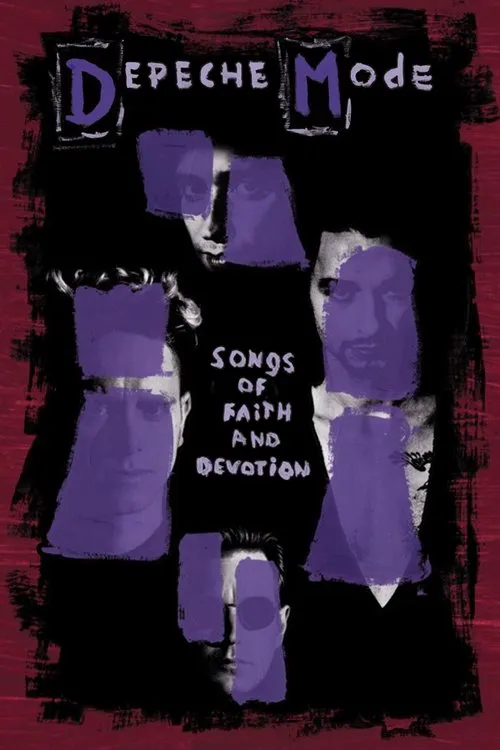Depeche Mode: 1991–1994 “We Were Going to Live Together, Record Together… and It Was Going to Be Wonderful…”

Plot
Depeche Mode embarked on an ambitious journey with "Songs of Faith & Devotion" (1993), a follow-up to their 1990 album, "Violator." The band, consisting of Dave Gahan, Martin Gore, and Alan Wilder, was eager to explore uncharted sonic territories after a prolonged period of internal conflicts and personal demons. This transitional period, captured in "We Were Going to Live Together, Record Together… and It Was Going to Be Wonderful…," was marked by turmoil that nearly tore the band apart. As production for "Songs of Faith & Devotion" began, the band faced significant creative challenges. The album was to be a more stripped-back, intimate record, a drastic contrast to their previous effort. Gahan had recently overcome a near-fatal cocaine addiction, which had affected his vocals and overall well-being. Wilder, who had become an essential part of the recording process, stepped up to handle songwriting duties and offered a fresh perspective to balance out Martin Gore's dominant role. Meanwhile, Alan Wilder had moved into Martin and Debi Gore's house, fostering a sense of closeness that would, however, have unforeseen consequences. It was during this time that the band decided to live together in the hopes of enhancing their musical connection and deepening their bond. Unfortunately, this living arrangement led to an intense clash between individual personalities, fueled by conflicting personalities and creative differences. Dave Gahan, the band's enigmatic lead singer, grappled with his newfound fame, struggling to stay grounded as the spotlight increasingly cast its attention upon him. On the other hand, Martin Gore's songwriting prowess had reached new heights, propelling the band's commercial success further. Alan Wilder, having always been an integral member behind the scenes, found himself increasingly isolated from the core of the band. As tensions escalated, disagreements about the direction of the album grew. Wilder's ideas were often at odds with Gahan and Martin, resulting in the creative stagnation the band had desperately sought to overcome. Despite the turmoil brewing beneath the surface, the music of "Songs of Faith & Devotion" flourished in a manner that few predicted. Gore's songwriting was at its peak, while Gahan had never been more vocally expressive. Once recording was complete, the album was released in anticipation of a corresponding tour. However, the band's inner turmoil now began to manifest in their performances. Gahan's volatile temper and increasing substance abuse led to public outbursts during the tour. The tension reached a boiling point after an altercation involving a female fan in Los Angeles left Gahan with lacerations. Wilder, feeling increasingly disillusioned with the band, became detached from the rest of the group. In an environment riddled with infighting and ego clashes, the band's relationship ultimately began to fray. The pressure took its toll on Wilder, who decided to leave the band following a tumultuous New Year's Eve show in Berlin in 1994. Martin Gore acknowledged Wilder's significant contributions to the music and expressed gratitude for his years of service, even though the decision was, in part, a result of the band's internal dysfunction. The documentary short "We Were Going to Live Together, Record Together… and It Was Going to Be Wonderful…" beautifully encapsulates the chaos and turmoil surrounding the creation of "Songs of Faith & Devotion" and the subsequent tour. It offers a poignant portrayal of Depeche Mode's most turbulent period, an era marked by the band members' individual struggles, the blurring of personal lines, and the almost-cataclysmic outcome of their experiment. This film captures the intense highs and lows the band endured during this time, leaving an enduring testament to the fragility that lies at the heart of the music-making process.
Reviews
Recommendations


